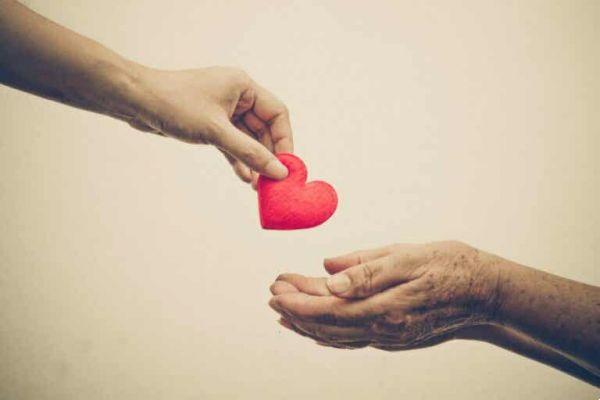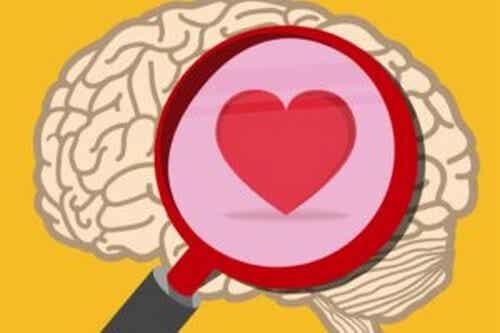Seeing others in difficulty causes us anguish, helping them relieves it. That being the case, can we really talk about solidarity? Let's find out what science says about it.

Last update: February 19, 2022
When we help a family member, friend, or stranger we meet on the street, we feel selfless and good. Rushing to the aid of a person in need makes us feel better people, with values and high morality. On the contrary, if we deny our help we feel selfish, and selfish we consider those who refuse to offer help to others. What if this behavior wasn't completely disinterested?
Have you ever thought about the motivations behind the will to help, to be generous with others? Are you sure that understanding and empathy are always driving us?
What if the desire to contribute to the well-being of others was not motivated by solidarity? Some research has explored this field and has come to an interesting conclusion.
Do we help out of empathy or out of anxiety?
The prosocial behaviors implemented by the human being have been the subject of study and research for decades. Why do we help? Are we born with this predisposition or is it a learned behavior? These and other questions are still a source of debate.
Seeing someone in pain has been shown to activate the same neuronal networks that are involved when we experience pain firsthand. In a way, we are able to make the pain of others our own.
But what exactly do we feel in these situations? The most confirmed hypothesis seems to be that according to which, in front of a person in need, we can react in two ways:
- We feel anguish, sorrow, concern or fear about his situation.
- We feel compassion, understanding: we are sincerely moved.
Whether one range of emotions or the other awakens in us depends on different factors. First, from the concrete situation of suffering in which the other person finds himself, and then from our personal disposition.
Faced with the same event, two people can have different reactions. And the same person might react differently to two distinct situations.
What motivates us?
Whether anguish or compassion awakens in us, it is likely that in both cases we will help those who need help. But the reasons in the two cases will be very different.
When we feel alarmed, feel sorry or worry, our model of action is therefore selfish. We help the other to calm the discomfort we feel in seeing him in difficulty. In reverse, if we feel moved, we will act out of a truly altruistic motivation, aimed at reducing the suffering of others and not ours.
This reality has emerged in some research involving groups of university students. It has been shown that the help model that is activated depends on the emotion felt. Those who felt anguish acted driven by the motivation to reduce it; those who felt compassion aimed to satisfy the needs of the other.
We cannot choose what kind of response will activate in us. It is therefore unfair to say that one of the two groups is endowed with higher moral values than the other. Furthermore, an interesting fact emerged in one of the experiments.
When helping involved a high personal sacrifice, those who tended to empathize displayed a selfish role model. Apparently, a personal sacrifice cancels the initial selfless impulse.
Are we beings in solidarity?
These findings add to the eternal question: To what extent are human beings supportive, selfless and generous? We already knew that, on many occasions, helping others makes us feel gratified. But now we know that we also act to counter our malaise.
From the moment our emotions come into play so much, can we really say that what drives us to action is concern for the other? Whatever the latent answer or motivation, prosocial behaviors are useful. They help those who receive them and, apparently, also those who perform them. It is important to continue to promote them for a better social coexistence.


























